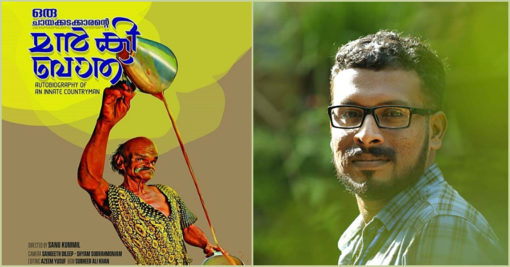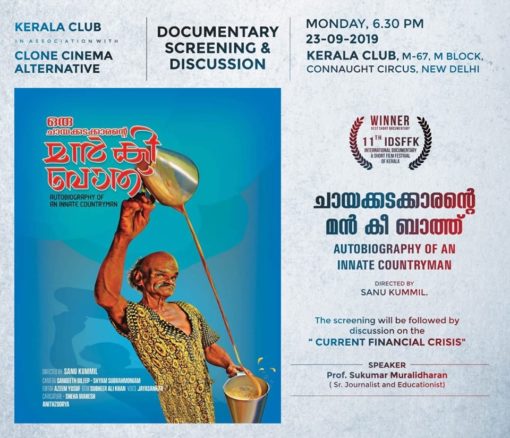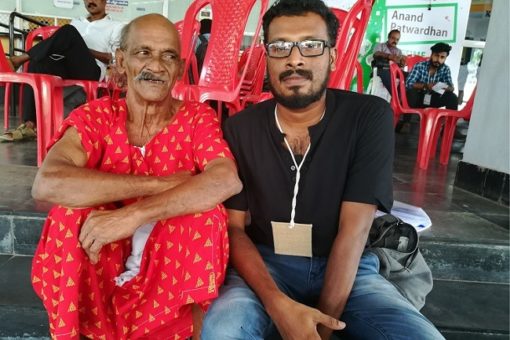
On Monday evening, the screening of Malayalam documentary Oru Chaayakadakkarante Mann ki Baat (‘Mann ki Baat’ of a Tea Vendor) at New Delhi’s Kerala Club was cancelled last minute due to alleged threats from local Sangh Parivar leaders. The screening was organised by a Malayali film group called the Clone Cinema Alternative, in association with the Club situated at the Connaught Circus.
Directed by journalist Sanu Kummil, Oru Chayakadakarante Mann ki Baat tells the story of 75-year old Yahiya and his lone fight against demonetisation. A tea-vendor from Kerala’s Kollam district, Yahiya garnered attention after his striking protests against the issue, as part of which, clad in a “maxi” (nightie) and with a half shaved moustache, he burned all his cash in public. Yahiya, one among the many who were forced to queue up at ATMs as part of the sudden government decision, had to be hospitalised after he collapsed waiting in line. The name, “Maxi Maman” (“Maman” – a generic Malayalam term for uncle), almost a local anti-establishment hero, was attributed to him by people after this.
The Kerala Club screening was supposed to be followed by a discussion on the country’s economic slowdown, led by Sukumar Muralidharan, senior journalist and faculty at the Jindal School of Journalism and Communication. Kummil was informed a night before the screening that local Sangh leaders demanded that the Club cancels it since it showed “Narendra Modi in a bad light”.

The film, well received in Kerala, was also the winner of the Best Short Documentary award at the annual state-run International Documentary & Short Film Festival of Kerala (IDSFFK) last year in Trivandrum. Post the award, it was also screened in places like Kolkata and Riyadh in Saudi Arabia. Even though it faced stiff opposition from BJP supporters in Kerala, it hadn’t been stalled anywhere before.
The film begins with Yahiya’s childhood as one among 13 children in a family in Kadakkal, Kollam. It then travels to Saudi Arabia, where he spends 18 years struggling to make ends meet. The work of course ends with his unique protests and life as a nightie-clad tea-vendor in Thiruvananthapuram. Yahiya was once beaten up by a cop who passed by his tea-shop, for wearing his lungi folded up as usual, which the cop considered disrespectful. The decision to walk around in nighties was consequent and in protest to this, since nighties didn’t have to be let loose, even if a cop walked past!
Oru Chayakadakarante Mann ki Baat is Sanu Kummil’s first documentary. His second work, Six Feet Under, was screened at this year’s IDSFFK. Six Feet Under is about dalit families in Kerala who are unable to find land to bury their dead, leading them to often do it inside their homes. Elaborately shot across six districts, the story is told through conversations with the families and local activists.

Since the incident, Kummil has garnered support from various progressive circles in Kerala and elsewhere. He wrote on Facebook, “I’ve had no time for disappointment, for I’ve been receiving immense support from my dear friends in the media, film society activists and other secular spaces. I’m extremely thankful to all of them for standing firmly by my side.”
The film was later screened privately the same evening by the Delhi Union of Journalists (DUJ) and was attended by CPI (M) leader and former MP from Kerala, A. Sampath.




